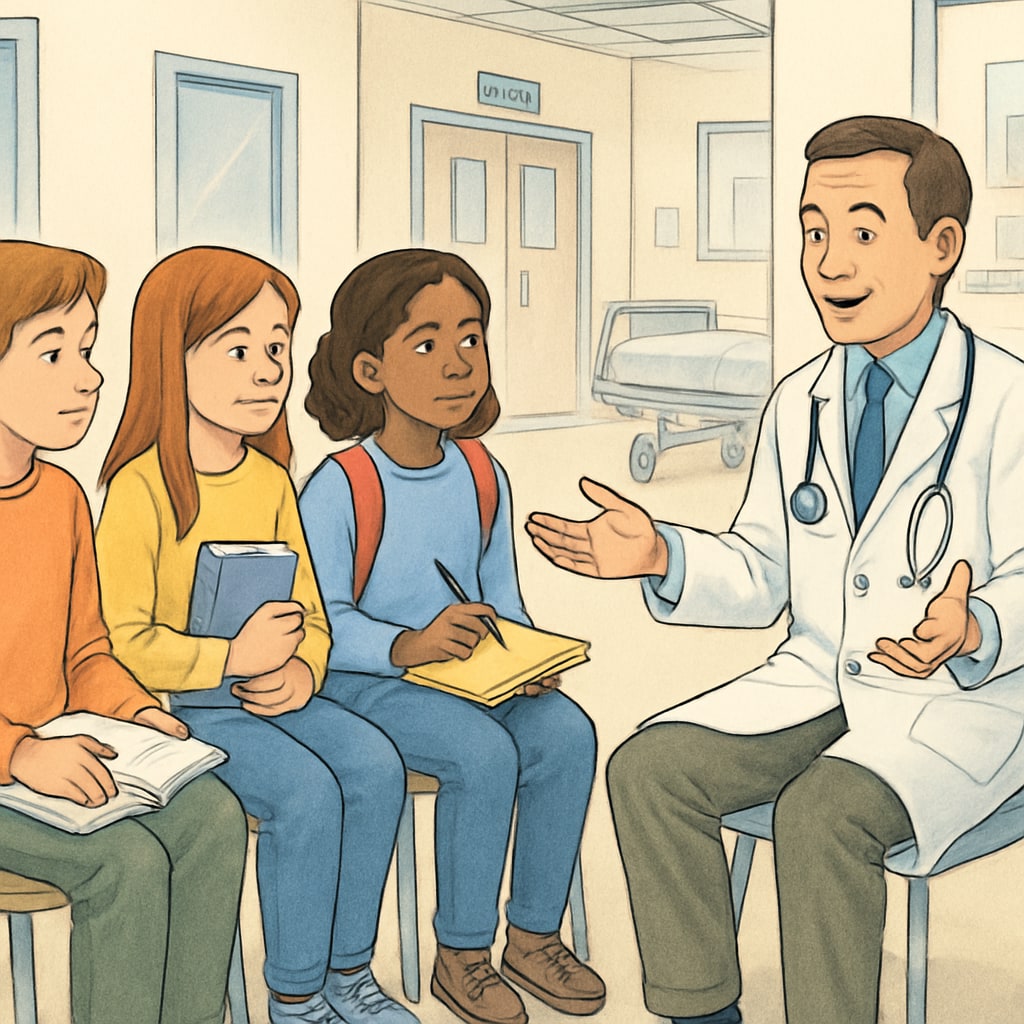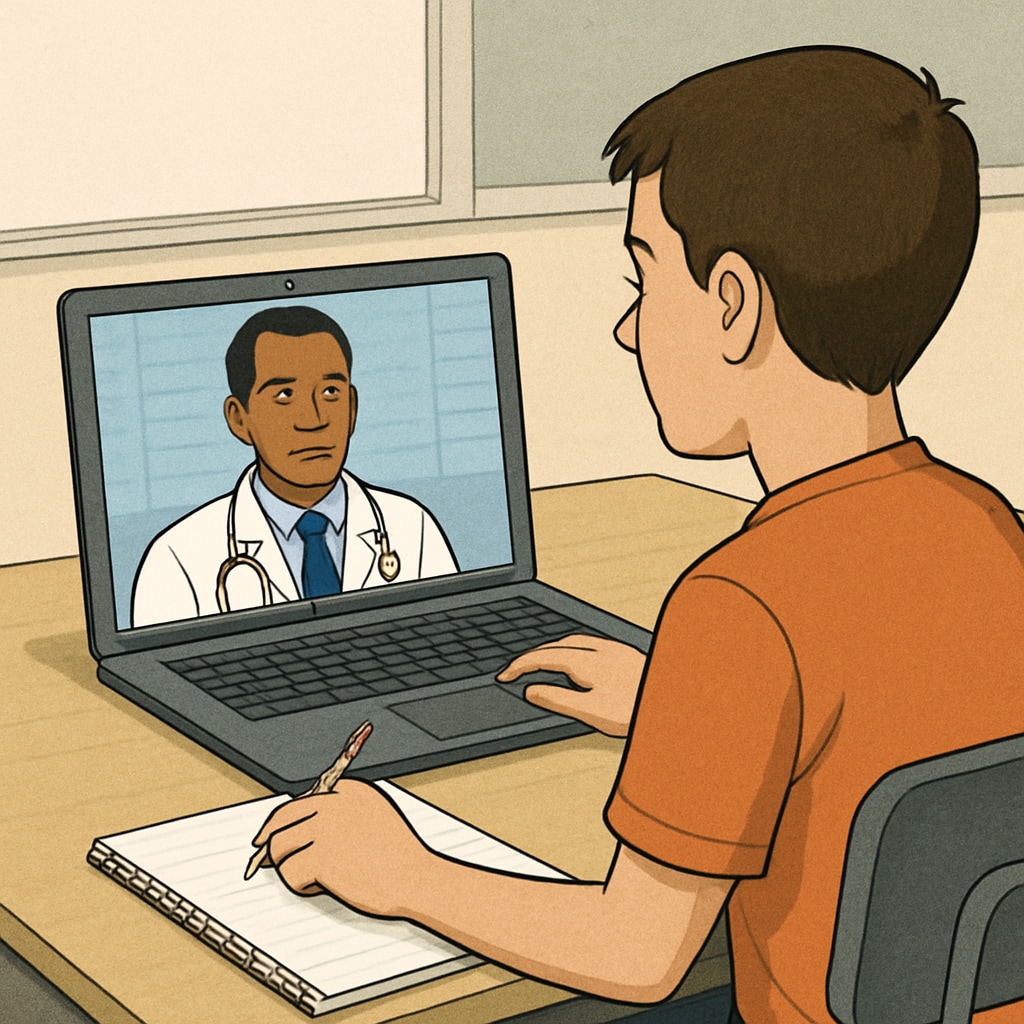Engaging students in discussions about medical careers through school projects that involve doctor interviews can significantly influence their career awareness and life planning skills. By interacting directly with healthcare professionals, students gain firsthand insights into the medical field, helping them connect theoretical knowledge with real-world applications. This article delves into the design and implementation of such projects, ensuring they are both enriching and accessible for K12 students.
Why Are Medical Career Projects Important for K12 Education?
Medical career projects bridge the gap between classroom learning and real-world application. In the context of K12 education, these initiatives serve several important purposes:
- Career Exploration: They expose students to various roles within the healthcare system, from surgeons to medical researchers.
- Skill Development: By engaging with professionals, students develop communication, critical thinking, and research skills.
- Inspiration: Firsthand accounts from doctors can inspire students to pursue careers in medicine or related fields.
For example, a student interviewing a pediatrician might not only learn about the day-to-day responsibilities of the job but also understand the commitment and passion required to work with children. Such experiences can be transformative, particularly for students unsure about their future paths.

Designing Effective Medical Career Projects
To ensure the success of these projects, educators must develop a structured framework that guides students through the process. Key steps include:
- Defining Objectives: Determine the specific goals of the project—whether it’s to foster interest in healthcare, improve communication skills, or explore ethical dilemmas in medicine.
- Identifying Suitable Professionals: Reach out to healthcare professionals in various fields. General practitioners, surgeons, nurses, and medical technologists can all offer unique perspectives.
- Preparing Students: Equip students with background knowledge about the medical field and provide them with a list of potential interview questions.
- Facilitating the Interaction: Arrange in-person or virtual interviews, ensuring that both students and professionals are comfortable and well-prepared.
- Reflecting on the Experience: Encourage students to summarize their learnings in a report or presentation, emphasizing how the interview influenced their understanding of medical careers.
For resources on interview preparation, educators can visit Britannica’s Healthcare Overview, which offers foundational knowledge about different roles in the medical field.
How to Maximize Student Engagement in Doctor Interviews
For students to truly benefit, it’s crucial to make the interviews interactive and engaging. Here are some tips:
- Encourage Curiosity: Motivate students to ask open-ended questions that go beyond job descriptions. For example, “What inspired you to become a doctor?” or “What challenges do you face in your role?”
- Leverage Technology: Use video conferencing tools for interviews with doctors in remote locations, broadening the range of experiences students can access.
- Incorporate Group Work: Have students collaborate on preparing questions and analyzing their findings, fostering teamwork and diverse perspectives.

The Broader Impact of Medical Career Projects
Beyond individual student benefits, medical career projects can have a broader impact on schools and communities. By connecting educational institutions with local healthcare providers, they can strengthen community ties and promote a culture of lifelong learning. Moreover, such projects can help address societal challenges, such as the shortage of healthcare professionals, by inspiring the next generation to pursue medical careers.
For further reading, the World Health Organization’s Career Section provides insights into global opportunities in healthcare and the skills required to succeed in this field.
Conclusion
Medical career projects that involve doctor interviews are a powerful tool for inspiring and educating students. By providing a structured framework and fostering meaningful interactions, educators can help students explore the many possibilities within the field of medicine. These projects not only enhance career awareness but also equip students with essential life skills, preparing them for a future full of opportunities.
Readability guidance: Short paragraphs and bullet points are used to ensure clarity. Passive voice is minimized, and transitions such as “for example” and “in addition” are incorporated to enhance flow. The content is student-friendly while maintaining professional rigor.


